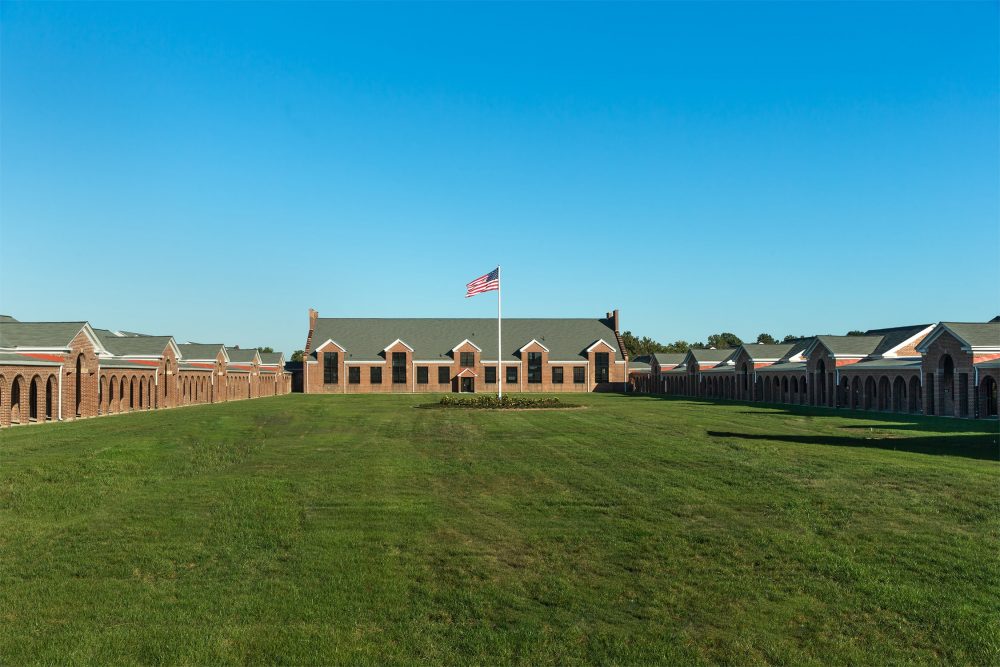The Fairfax County Board of Supervisors on Tuesday began clearing the way for a $188 million overhaul of the former Lorton prison site that, when finished, will house residents and new businesses inside refurbished cellblocks, guard towers and prison dorms.
The mostly privately financed project to build townhouses, apartments, single-family homes and retail space on the prison grounds is set to break ground after October on about 80 acres owned by the county, officials said.
Pending a 30-day public comment period, the county plans to transfer parts of that land to the project’s developers — the Alexander Co. and Elm Street Communities — while other pieces will be leased for 99 years or kept by the county, a county spokesman said.
In a 10 to 0 vote, the board approved rezoning the site to allow for development that Lorton residents have long awaited and that could ease the county’s frustrations over the bailout of a failing arts center on the correctional center grounds, which involves the county assuming $30 million of its debt.
The Workhouse Arts Center will keep operating near the new project’s site, county officials said. Geared toward historic preservation, the project is expected to be finished in 2020, with the county paying $12.7 million for infrastructure improvements.
“This really is the final piece to be completed to reform, redo and metamorphosize this marvelous piece of land that the county was able to acquire” after the prison closed in 2001, said Supervisor Gerald W. Hyland (D-Mount Vernon), whose district includes the site.After new businesses and residential communities were built elsewhere in the area when the prison closed, “finally the jewel on top of the crown is what we have pending before us,” Hyland said.
Lorton residents expressed excitement about the new project on land that county officials are now calling Laurel Hill as part of a rebranding effort meant to erase the years-long stigma in an area that houses the District’s penitentiary, landfills and heavy industry.
However, residents’ support was tempered Tuesday by an ongoing battle to close a nearby industrial landfill sooner than its operator wants.
During the public hearing portion of the county board meeting, Larry Clark, who lives near the prison, urged county supervisors to require the project’s developers to recycle their construction debris — a request that is part of the opposition to a proposal by the EnviroSolutions waste company to keep its landfill running until 2034. County supervisors are expected to decide that issue later this month.
“This is the project. This is the time to embrace recycling within the county,” said Clark, a vice president of the South County Federation group of homeowners.
The Board of Supervisors agreed to require more recycling, and an attorney for the development team said it is ready and willing to avoid using a landfill.
“This issue is important to the community and we’re aware of it,” the attorney, Gregory Riegle, said during the public hearing.
The project also would be financed through federal and state tax credits meant to help preserve historic sites, county officials said.
The project will include 110,000 square feet of retail and office space and a 20,000- square-foot public space inside the former prison’s chapel. The prison dining hall will be used for homes or businesses, officials said.
County officials predict that the project will create about 300 jobs and generate about $2.5 million in annual taxes, county spokesman Brian Worthy said.

